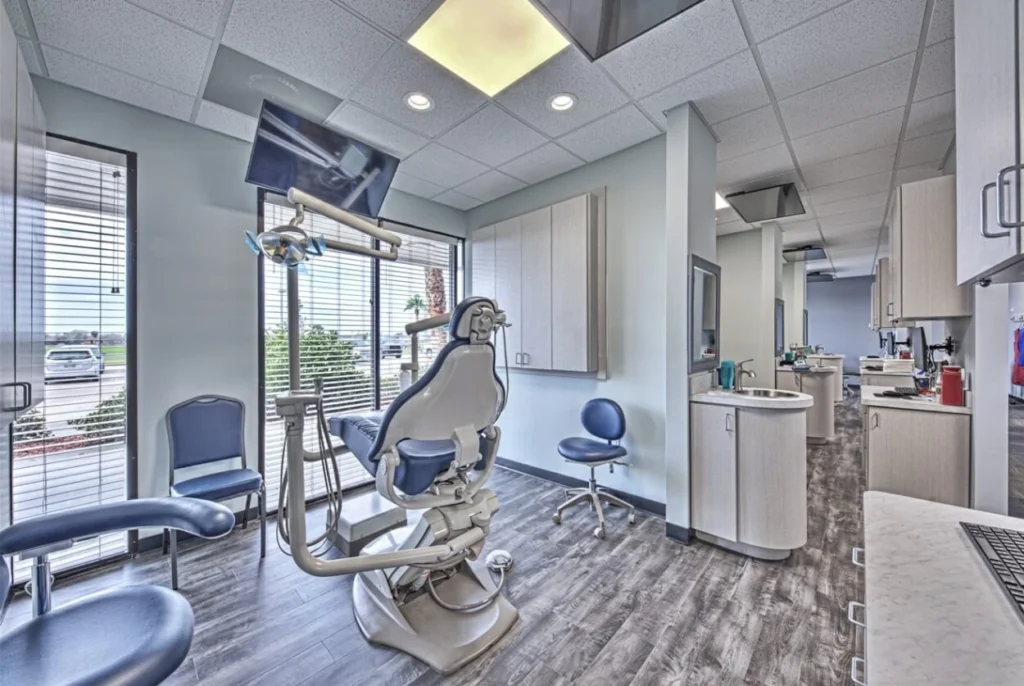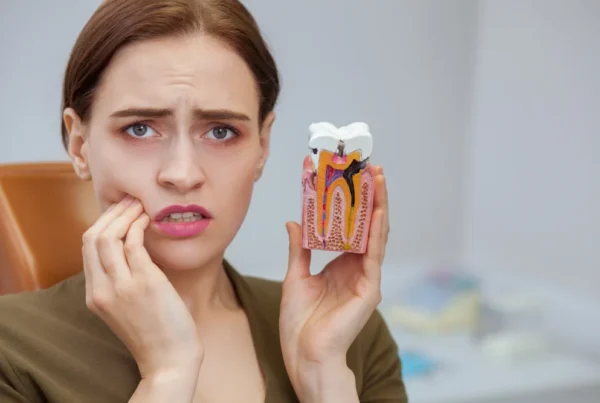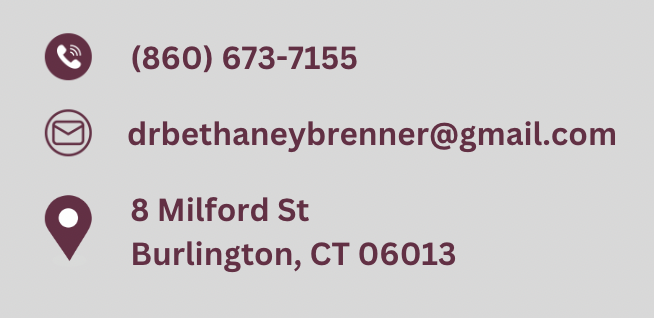Dental emergencies often come without warning. Whether it is a knocked-out tooth or a sudden, sharp pain, how you respond in the first few moments can make a big difference in the outcome. Staying calm and acting quickly are essential for managing discomfort and protecting your teeth until you receive professional care.
When you know what to do ahead of time, you are more likely to respond with confidence. Managing bleeding, preserving a tooth, or rinsing with saltwater can prevent further complications. Being prepared empowers you to take the right steps in a stressful situation and improves your chances of a successful recovery once you reach your dentist.
Recognizing a Dental Emergency
Understanding the signs of a true dental emergency is important for knowing when to act. Not all discomfort requires immediate care, but some symptoms are too serious to ignore.
Severe pain, swelling, bleeding, or signs of infection like a pimple on the gums should be taken seriously. If a tooth is knocked out, acting fast can mean the difference between saving and losing it. In those first few minutes, how you care for the tooth and manage the injury has a direct impact on the success of future treatment.
The more clearly you recognize an emergency, the sooner you can take action. Knowing the difference between routine discomfort and an urgent issue helps you make informed decisions and take steps that truly protect your dental health.
Immediate First Aid Steps for Common Dental Emergencies
Knowing what to do right away can prevent complications and ease discomfort. These basic first aid tips will help you manage a variety of dental emergencies at home before professional treatment is available:
- Toothache: Rinse with warm saltwater to clean the area. Apply a cold compress on the cheek and use over the counter pain medication as needed. Never apply aspirin directly to the tooth or gums.
- Chipped or broken tooth: Rinse the mouth gently and collect any tooth fragments. Use gauze to stop bleeding and apply a cold compress to reduce swelling.
- Knocked-out tooth: Gently place the tooth back into the socket if possible. If not, store it in milk or saliva and get to your dentist as soon as you can.
These steps will not solve the problem permanently, but they can reduce pain and increase the chances of preserving the tooth. Taking the right action quickly helps prepare your mouth for successful care when you arrive at the dental office.
Actionable Response or Strategic Solution
Being prepared for dental emergencies starts with having the right tools at your fingertips. A dental first aid kit is one of the most practical ways to stay ready for unexpected situations and provide immediate care when needed.
Your emergency kit should include the following:
- Sterile gauze to stop bleeding and protect injured areas
- Dental wax to cover sharp or broken teeth until treatment is available
- Salt packets for creating saltwater rinses to clean wounds and ease swelling
- Pain relievers to manage discomfort while you wait for dental care
Having these items close by makes a stressful situation easier to handle. It allows you to provide immediate support to yourself or someone else, reducing pain and preventing complications while you prepare to see a dentist.

Decision Criteria or Escalation Triggers
Sometimes, at-home care is not enough. Certain signs indicate that professional treatment is necessary, and knowing when to escalate can prevent more serious damage.
Pain that does not go away with rinses or medication should be evaluated by a dentist. Persistent swelling, difficulty opening your mouth, or signs of infection like fever or pus should also prompt immediate attention. Uncontrolled bleeding and suspected fractures of the teeth or jaw are critical issues that cannot wait.
Ignoring these warning signs can lead to worse outcomes. Getting the right care at the right time protects your health and prevents small problems from turning into long term dental complications.
Support Resources or Professional Guidance
In an emergency, time matters. Knowing who to call and where to go ensures you receive help without unnecessary delays. A little planning now can save you from confusion later.
Keep a list of dental offices, including emergency contact information and hours of operation, somewhere easy to access. Make sure your family knows where it is. For serious injuries that involve trauma to the face, jaw, or airway, do not hesitate to seek emergency medical care.
Being connected to professional guidance provides peace of mind during a stressful situation. It ensures you are not navigating the emergency alone and helps you access care faster and more confidently.
Preventive Measures or Best Practices
Dental emergencies can often be avoided through good habits and routine care. Taking the time to protect your oral health today may prevent pain and urgent visits tomorrow.
Make regular dental visits part of your routine. These appointments help catch problems early, such as cavities or gum infections, before they become emergencies. Learning how to handle a dental injury and keeping a first aid kit stocked also helps you stay prepared for any situation.
By making prevention a priority, you build a strong foundation for long term oral health. These habits not only reduce risk but also help you respond effectively if something unexpected does occur.
Conclusion
At Bethaney B. Brenner DMD LLC, we know that dental emergencies are stressful. That is why Dr. Brenner and her compassionate team are here to support you when you need it most. Whether you are dealing with a sudden injury, severe pain, or a lost tooth, we are ready to help.
We believe in preparation and prevention, but we also know that quick access to professional care is essential. Our office is committed to providing fast appointments, thorough evaluations, and the kind of care that puts your comfort and health first.
If you are experiencing a dental emergency or want to learn more about how to stay prepared, contact Dr. Bethaney B. Brenner’s office. We are here to help you restore your smile and your peace of mind with prompt, personalized care you can count on.
Book Your Consultation Today!
Dr. Bethaney B. Brenner DMD
8 Milford St, Burlington, CT 06013
Frequently Asked Questions
What should I do if my tooth gets knocked out?
Pick up the tooth by the top (the crown), not the root. Rinse it gently without scrubbing. Try to place it back in the socket if possible. If not, store it in milk or your saliva and get to a dentist immediately.
How can I manage a severe toothache at home?
Start with a saltwater rinse to reduce inflammation and clean the area. Use a cold compress on the outside of your cheek to ease pain. Over the counter medication can also help, but avoid placing anything directly on the gums. Contact your dentist as soon as possible.
Can a chipped or broken tooth be repaired?
In many cases, yes. Rinse your mouth and collect any broken pieces. Apply gauze if bleeding occurs and use a cold compress to reduce swelling. Visit your dentist as soon as you can for the best chance at restoring the tooth.
Related Articles





